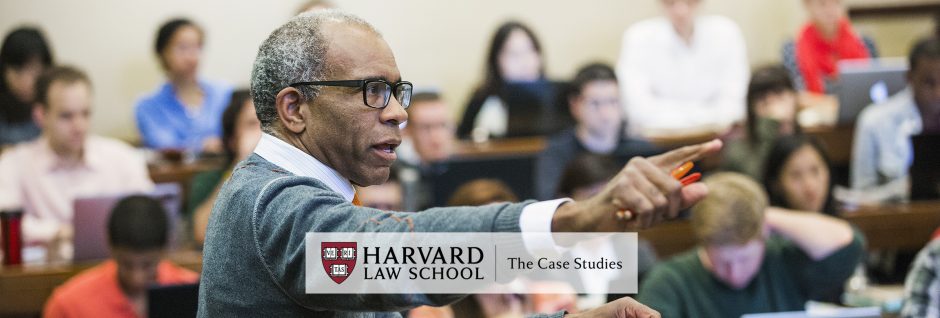Product: “Cyrus Vance and Dominique Strauss-Kahn: Dilemmas in a High-Profile Prosecution”
HLS Professor Jeannie Suk repurposed a discussion-based case study, “Cyrus Vance and Dominique Strauss-Kahn: Dilemmas in a High-Profile Prosecution,” to explore the disconnect between justice and the justice system in a foundational 1L course. In her two sections of Criminal Law, Suk paired the case study with analysis of Inmates of Attica Correctional Facility v Rockefeller, 477 F.2d 375 (1973), a seminal case that affirmed discretion in charging and prosecuting.
Originally written by Professor Philip Heymann, the “DSK” case study chronicles the allegations of rape against Dominique Strauss-Kahn, director of the International Monetary Fund and presidential hopeful in France, during a hotel stay in New York City. The allegations pitted the credibility of a black immigrant maid against that of a well-off, famous white man; Manhattan’s new district attorney, Cyrus Vance, had to decide whether to allow Strauss-Kahn out on bail and, later, whether to drop charges when the evidence base unraveled. On the line was not only Strauss-Kahn’s image, but Vance’s too.
Professor Heymann originally used the case in an elective on Decision-Making and Leadership in the Public Sector. His teaching plan explored the permissible factors that go into charging decisions, the implications of prosecutorial discretion particular to the DSK case, and strategies for investigating hypotheses and gathering evidence.
But for Suk’s 1Ls, it was important to explore the relationship between discretion and justice. She asked:
- What is discretion? Why don’t legal rules determine criminal liability and punishment?
- Is discretion fair to defendants? To victims? To society?
- Is it fair to take the case to trial if a prosecutor believes beyond a reasonable doubt that a defendant is guilty, but knows a jury is unlikely to convict or the admissible evidence is unconvincing?
- If the prosecutor conducts himself properly, is the outcome automatically just?
- Under the Rawlsian veil of ignorance, are prosecutors better suited as trustees of justice or delegates of the people? How much should public pressures influence prosecutorial discretion?
Together, the class parsed out available standards for charging someone with a crime: probable cause, beyond a reasonable doubt, and the grey areas in between. Through Socratic questioning, Suk elicited from students the notion that probable cause does not signify a probable conviction, which is determined by the strength of the admissible evidence.
From many angles, Suk showed how written law and established procedure do not necessarily bring justice. For instance, she asked the class to consider whether an acquittal for a rapist, due to insufficient evidence or lingering doubt in the jury, would send a message of justice. Suk posed another example, the mandatory arrest and prosecution of domestic violence suspects, as a procedural extreme: does removing human intervention actually bring more justice? Furthermore, Suk noted that it is unconstitutional to consider race in prosecutorial decisions, but prosecutors do commonly think of representing, empowering, or bringing justice to specific populations. The perception of fairness, whether in charging or trial, can engender faith in the justice system.
To conclude, Suk explained how prosecutors were the lynchpins of the criminal justice system. Suk said, “There are legal incentives to cast many behaviors as criminal with big punishments. It’s a one-way ratchet up.” Overcriminalization, she argued, is premised on prosecutorial discretion: the system presupposes that not all offenses will be pursued, and thus prosecutors should be able to tailor charges and offenses to the individual defendant. Should prosecution be monitored by an independent institution? Should we allow for private prosecutions, as other countries do? These are questions that these 1Ls will carry with them throughout their legal careers.
“Cyrus Vance and Dominique Strauss-Kahn: Dilemmas in a High-Profile Prosecution” (A), (B), and (C) are available through the Case Studies website. Educators and staff at non-profit institutions may register to download review copies free of charge.



